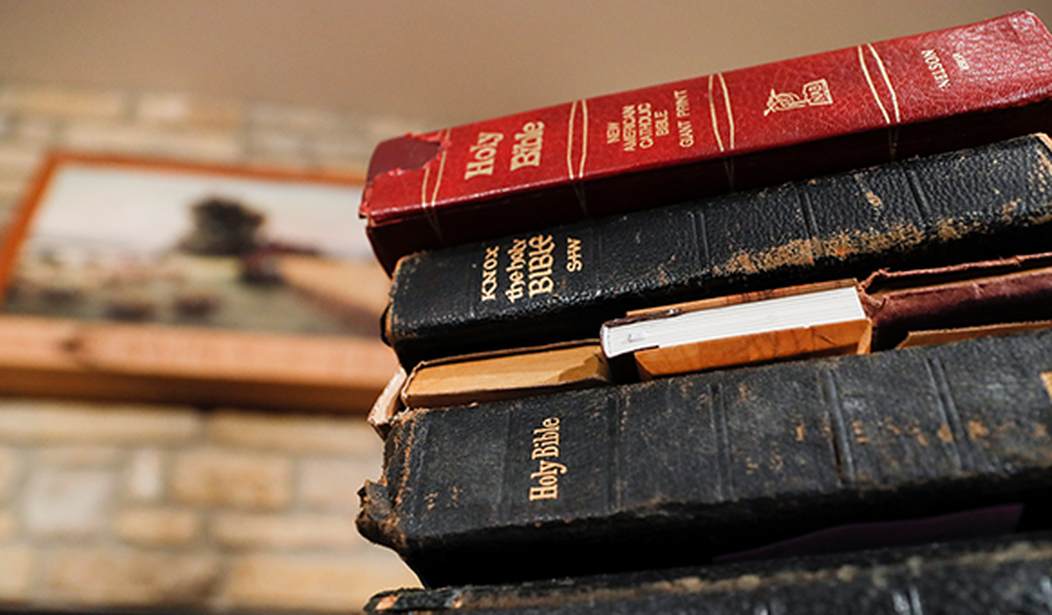The Heidelberg Catechism, published in 1563, poses a good question to contemplate as 2019 heads toward history: “What is your only comfort in life and death?”
Last month, aboard a ship steaming from Casablanca, Morocco, to Dakar, Senegal, I read two thought-provoking novels featuring West African protagonists who found no comfort.
One novel, often called the most important work of fiction in English by an African in the past century, is Chinua Achebe’s “Things Fall Apart”(1958). Achebe’s father expressed faith in Christ, and Achebe later said, “It was extremely useful that we prayed and read from the Bible and sang hymns night and day.”
‘Is anyone spared mortal terror?’ Yes, if we know that Christ’s sacrifice pays for our sins, and that God gives us assurance of eternal life.
Nevertheless, Achebe positively portrayed African tribal culture and criticized Christianity’s overturning of that culture. Okonkwo, the protagonist of “Things Fall Apart,” is a strong man who scorns Christian love for the weak. Always wanting to look tough, Okonkwo kills his adopted son and an official. Okonkwo’s tribal religion gives him no comfort. About to be arrested, he commits suicide.
My wife and I walked the ship’s deck off the African coast and memorized the first part of the Heidelberg Catechism’s answer about our only comfort: “That I, with body and soul, both in life and death, am not my own, but belong unto my faithful Savior Jesus Christ, who with his precious blood has fully satisfied for all my sins, and delivered me from all the power of the devil.”
Recommended
I turned to the second novel, Graham Greene’s “The Heart of the Matter”(1948), which is also on many Top-100-in-the-20th-century lists. The protagonist, Major Henry Scobie, a Roman Catholic believer in Sierra Leone during World War II, breaks his vows to wife and country.
Scobie follows Catholic rituals, but they do not give him comfort. Foolishly worried that his faithful servant Ali will expose his adultery and corruption, Scobie says the words that get Ali killed. Then, like Okonkwo, Scobie commits suicide.
Susan and I memorized the rest of Heidelberg’s explanation of our only comfort: God “so preserves me that without the will of my heavenly Father not a hair can fall from my head: yea, that all things must work together for my salvation. Wherefore, by His Holy Spirit, He also assures me of eternal life, and makes me heartily willing and ready, henceforth, to live unto Him.”
And yet, many in Morocco and Senegal, like many in America, look for comfort elsewhere.
Many Muslims in Casablanca gain comfort in worshipping alongside 105,000 others in the Grande Mosquée Hassan II, the largest mosque in Africa. It opened in 1993 with a 689-foot-tall minaret topped by a laser that shoots beams toward Mecca.
Twelve million donors gain comfort from certificates showing they helped pay for the $700 million mosque, which is supposed to last for centuries—but structural deterioration required an investment of another $60 million only a decade after the grand opening.
Muslim grandiosity is also coming to Dakar. Senegal’s capital already boasted the Grand Mosque of Dakar, but on Sept. 27 the new Massalikul Jinaan mosque opened: Carrara marble exterior, gold-leaf interior, giant chandelier with 2,000 lights, five minarets. More comfort in life and purportedly in death.
Imams in 2010 denounced new secular competition in Dakar: the 161-foot-tall African Renaissance Monument. The $27 million statue, Africa’s largest, displays a bare-chested man and a scantily dressed woman. It is purportedly a tribute to Africa’s “greatness, stability, and durability,” although the half of Senegal’s population that is illiterate, desperately poor, and mostly unemployed might dispute that characterization.
The statue, built by North Koreans, is not the only comfort politicians offer tired, poor, huddled masses yearning to be free. China paid $34 million to help construct in Dakar a Museum of Black Civilization that opened last December. Senegal President Macky Sall this year announced a $400 million high-speed train project that “is driving us at great speed into modernity.”
As we left Dakar’s harbor, I read another work of fiction, “The Lemon Table”: Author Julian Barnes describes how we drive at great speed toward death. He asks, “Is anyone spared mortal terror?” Yes, if we know that Christ’s sacrifice pays for our sins, and that God’s loving sovereignty gives us assurance of eternal life. Mosques, trains, statues: All weak tea.

























Join the conversation as a VIP Member